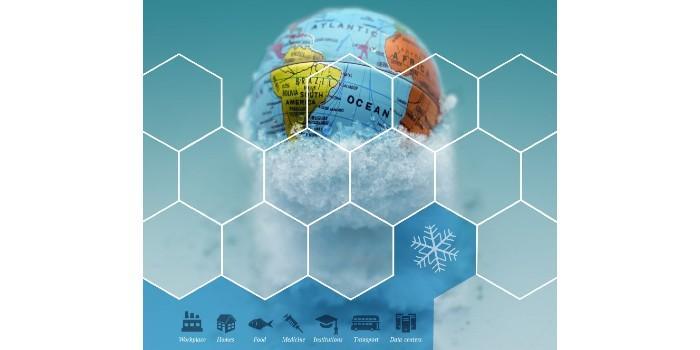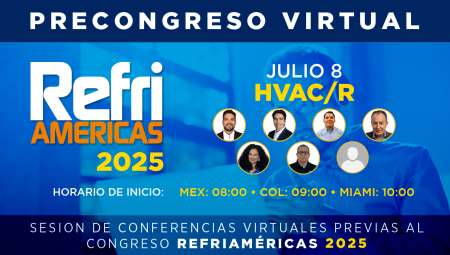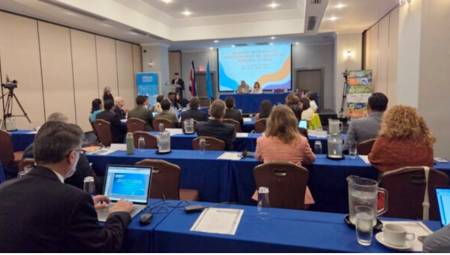 International. Coordinated international action on energy-efficient and climate-friendly cooling could avoid up to 460 billion tonnes of greenhouse gas emissions, roughly the same as eight years of global emissions at 2018 levels, over the next four decades, according to the United Nations Environment Programme (UNEP) and International Energy Agency's Synthesis of Refrigeration And Policy And Emissions Report. (IEA).
International. Coordinated international action on energy-efficient and climate-friendly cooling could avoid up to 460 billion tonnes of greenhouse gas emissions, roughly the same as eight years of global emissions at 2018 levels, over the next four decades, according to the United Nations Environment Programme (UNEP) and International Energy Agency's Synthesis of Refrigeration And Policy And Emissions Report. (IEA).
Reductions of between 210 and 460 billion tons of carbon dioxide (CO2) equivalent emissions can be achieved over the next four decades through actions to improve the energy efficiency of the cooling industry along with the transition to climate-friendly refrigerants, according to the report.
The report says countries can institutionalize many of these actions by integrating them into their implementation of the Kigali Amendment to the Montreal Protocol. The signatories of the Kigali Amendment have agreed to reduce the production and use of climate-warming refrigerant gases known as hydrofluorocarbons (HFCs), which have the potential to avoid up to 0.4°C of global warming by 2100 with this step alone.
Nations must make massive cuts in their greenhouse gas emissions to get on track to limit global temperature rise this century to 1.5°C. This is critical to minimizing the disastrous impacts of climate change. As nations invest in COVID-19 recovery, they have the opportunity to use their resources wisely to reduce climate change, protect nature, and reduce the risks of new pandemics. Efficient and climate-friendly cooling can help achieve all of these goals," said Inger Andersen, UNEP Executive Director.
The report highlights the importance of cooling to maintain healthy communities; vaccines and fresh food; a stable energy supply and productive economies. The essential nature of cooling services is underscored by the COVID-19 pandemic, as temperature-sensitive vaccines will require rapid deployment around the world; lockdowns that force people to stay at home for long periods of time are a health problem in many warm countries.
However, the growing demand for refrigeration is contributing significantly to climate change. This is the result of HFC, CO2 and black carbon emissions from the energy, mostly based on fossil fuels, that powers air conditioners and other refrigeration equipment.
"As governments implement massive economic stimulus packages to address the economic and social impacts of the COVID-19 crisis, they have a unique opportunity to accelerate progress on efficient and climate-friendly cooling. Higher efficiency standards are one of the most effective tools governments must meet energy and environmental goals. By improving cooling efficiency, they can reduce the need for new power plants, reduce emissions, and save consumers money. This new report provides policymakers with valuable information to help them address the challenge of global cooling," said Dr. Fatih Birol, Executive Director of the IEA.
An estimated 3.6 billion refrigeration appliances are used worldwide. The report says that if cooling is provided to everyone who needs it, and not just those who can afford it, this would require up to 14 billion cooling appliances by 2050.
The IEA estimates that doubling the energy efficiency of air conditioning by 2050 would reduce the need for 1,300 gigawatts of additional electricity generation capacity to meet peak demand, the equivalent of all coal-fired power generation capacity in China and India in 2018. Worldwide, doubling the energy efficiency of air conditioners could save up to $2.9 trillion by 2050 in reducing the costs of generating, transmitting and distributing electricity.
Action on energy efficiency will bring many other benefits, such as greater access to life-saving refrigeration, improved air quality, and reduced food loss and waste, the report says.
The report sets out the policy options available that can make cooling part of climate and sustainable development solutions, including:
• International cooperation through universal ratification and implementation of the Kigali Amendment and initiatives such as the Cool Coalition and Biarritz Pledge for Fast Action on Efficient Cooling
• National cooling action plans that accelerate the transition to climate-friendly cooling and identify opportunities to incorporate efficient cooling into stronger Nationally Determined Contributions under the Paris Agreement;
• Development and implementation of Minimum Energy Performance Standards and energy efficiency labeling to improve equipment efficiency.
• Promotion of building codes and other considerations to reduce the demand for refrigerant and mechanical cooling, including integrating district and community cooling into urban planning, improved building design, green roofs and tree shading;
• Campaigns to stop the dumping of environmentally harmful products to transform markets and avoid the burden of outdated and inefficient refrigeration technologies;
• Sustainable cold chains to reduce food loss, a major contributor to greenhouse gas emissions, and reduce cold chain emissions.
• The 48-page peer-reviewed report was written by a number of experts under the direction of a 15-member steering committee co-chaired by Nobel laureate Mario Molina, president of the Mario Molina Center, Mexico, and Durwood Zaelke, president of the Institute for Governance and Sustainable Development, USA. The report is supported by the Kigali Cooling Efficiency Program (K-CEP).
Source: UN.














